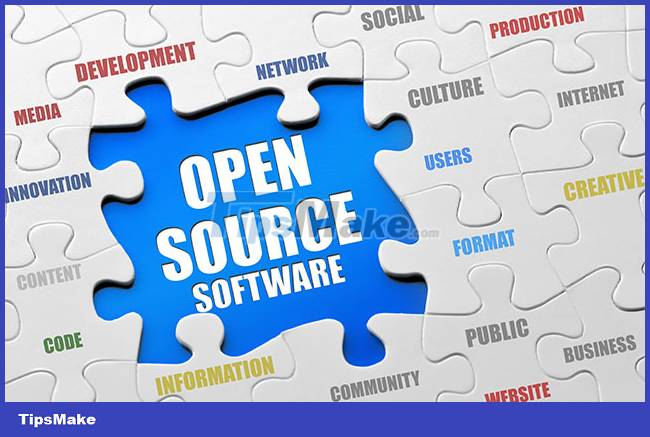7 misconceptions about open source software
This is really unfortunate because FOSS is an important component of today's software ecosystem that, if you know how to take advantage, they can bring huge benefits to any organization or individual.
Here are 7 common misconceptions about open source software that you should avoid.

Unsafe open source software
A common misconception is that FOSS is not secure because the source code of such software is publicly accessible, allowing hackers to easily abuse and exploit it. In fact, the opposite is true. The public nature of open source allows the worldwide community of developers to review and input data continuously.
Because so many developers keep an eye on the source code, especially for popular projects, problems that exist in the code can be detected and fixed quickly and often. This is not to say that FOSS is more secure than closed source software, but at least they are not a place for hackers to 'do whatever they want'. Not to mention FOSS-specific security features, which are no less effective than security solutions used for internal, closed-source code.
Open source means less quality
A lot of people believe that because FOSS is usually free and developed by volunteers, it's not for profit, so it's lower quality. In fact, many open source projects have proven to be just as good as directly competing closed source software. Often FOSS projects benefit from diverse input, with developers from different backgrounds and levels of expertise around the world contributing brainpower to create powerful software. Strong, high quality.
For example, LibreOffice doesn't have as wide a range of features as Office 365, but it does provide the features that the vast majority of people really need. Likewise, GIMP may not have all the same features as Adobe Photoshop, but if used correctly, the results can be equally good, which is proven. And you certainly can't say VLC Player is a bad media player because it's open source.
Open source for developers only
There is a misconception that FOSS is only for developers and IT professionals, mainly because they often grant users access to the underlying source code. While it is true that having access to the source code can be advantageous for developers, many open source programs are also very user-friendly and require no coding knowledge: Audacity for audio editing , VLC for media playback, Thunderbird for email, etc.
Open source software is not commercially viable
Some people believe that open source software is not commercially viable because they can be freely distributed. However, many businesses have achieved success by providing premium FOSS-related services, such as customization, installation, technical support or additional features. Companies like Red Hat (e.g. Red Hat Linux), IBM (e.g. PyTorch) and even Google (e.g. Android). have all demonstrated the commercial viability of source models. open.
Open source is always free
While it is true that there is a lot of free open source software, "open source" does not necessarily mean "free". The term "open source" refers to the unlimited accessibility of the source code, not the price. Many open source projects are funded through a variety of methods, such as donations, subscription fees, or offering premium versions with extra features.
Open source projects are not well supported
It's another mistake to assume that FOSS doesn't have good support because they rely solely on the community. While it's true that most open source projects don't typically have the specialized customer service that commercial software does, many projects still have an extremely active support community of developers and users. used worldwide. Online forums, tutorials and documentation are available to provide a wealth of help and knowledge.
All open source software is the same
Finally, there is a misconception that all FOSS are the same. But like proprietary software, FOSS varies widely in functionality, design, support, and licensing conditions. For example, consider the difference between the two open source operating systems Debian and Ubuntu. They have different target users, different release cycles, and different default environments.
I hope you take full advantage of the benefits that open source software brings.